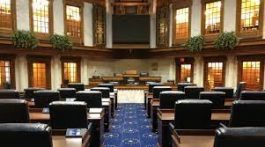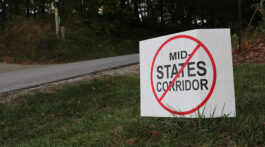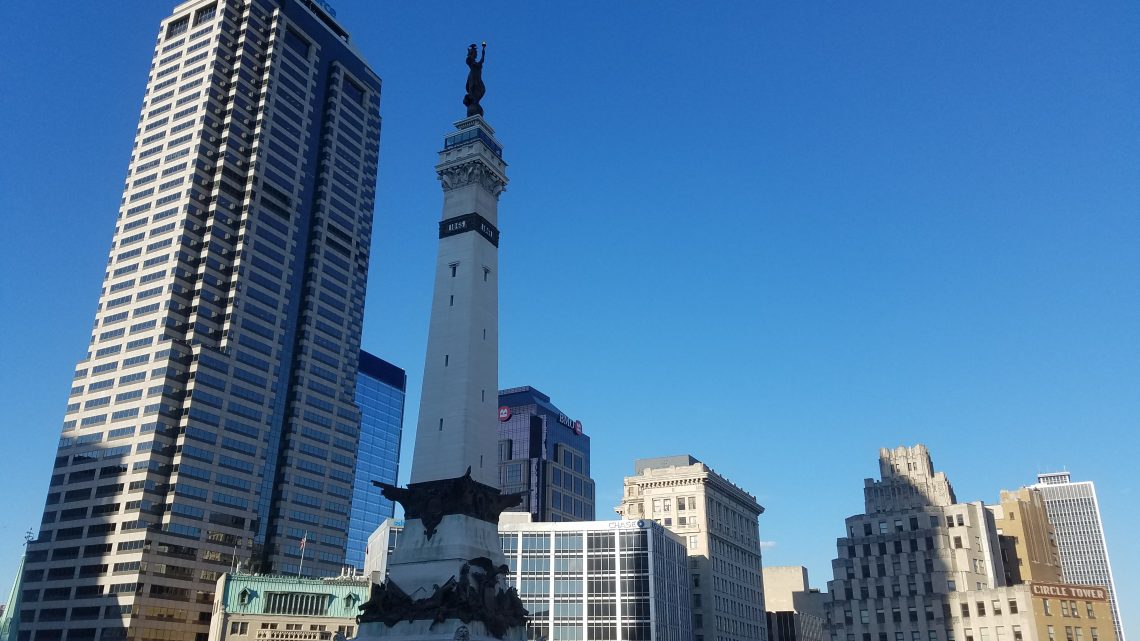by Laura Spanijan
Last October, thousands of people from across the country made the pilgrimage to South Bend for Notre Dame’s annual game against Stanford. South Bend hotels routinely sell out during home football weekends, so as recently as five years ago many of these visitors would have hopped in their rental cars and skipped town as soon as the clock reached double zeroes.
However, a new trend has changed the dynamic for Fighting Irish fans. For last year’s Stanford game, about 1,000 additional people spent the weekend in South Bend, even with hotels at peak capacity. By staying in the community for a longer stretch of time, they spent additional dollars at South Bend’s restaurants, shopped at South Bend’s stores and took in a nightcap at South Bend’s bars. This economic impact was made possible by Airbnb, the home sharing platform that connects guests to hosts with extra rooms.
Airbnb and the home sharing community now play valuable roles in helping Indiana cities during large events by using pre-existing resources — people’s homes — to expand lodging capacity when hotels sell out. For that Stanford game, those 1,000 extra visitors translated to nearly $200,000 in supplemental income for South Bend’s Airbnb host community. Additionally, Airbnb hosts helped Indianapolis welcome well over 2,000 additional travelers for the Indy 500 as hotels sold out months in advance.
While the value is clear for big events, this new iteration of the sharing economy is democratizing travel and spreading the benefits of responsible, family-friendly tourism throughout Indiana. A diverse array of cities across the state is experiencing an infusion of new travelers through home sharing — from Gary to Fort Wayne to Nashville — thanks to the 3,000+ Hoosiers who share their homes on Airbnb.
Home sharing empowers Indianapolis, in particular, to cast a wider net to prospective travelers whose budgets simply cannot accommodate higher hotel rates. It also allows visitors to authentically experience Indy as the locals do while driving tourist dollars and activating economies in neighborhoods that lack hotels.
Take Broad Ripple and Fountain Square, two fast-rising Indianapolis neighborhoods known for their vibrant cultural scenes and first-class restaurants. Each is home to just one small hotel, but their dozens of Airbnb hosts help route local tourism revenue to their merchant communities.
Unfortunately, the hotel lobby feels threatened by Airbnb hosts and has disingenuously attempted to portray them as professionals. In reality, the overwhelming majority of Indiana Airbnb hosts are regular, middle-class people who share the home in which they live full-time. And of those hosts, 41 percent simply share an extra, unused room in their residence — commonly empty nesters whose kids have left the home. They earn modest but valuable income from home sharing — $3,500 typically — that is used to pay the bills, take care of the mortgage and add to their savings.
Several state leaders — particularly Majority Floor Leader Matt Lehman — have worked to protect the ability of Hoosiers to responsibly share their own homes. HB1133 passed the State House last legislative session with bipartisan support and came just one vote short in the State Senate. As we look ahead to the 2018 session, we hope legislators will take the next step and solidify Indiana’s status as a leader in harnessing the economic power of the sharing economy.
The home sharing movement has already instilled community economic development while offering visitors a genuine home away from home right here in Indiana. Fair policies and a collaborative partnership between Airbnb, our hosts, and state policymakers will promote responsible tourism consistent with Indiana’s brand and values.
Laura Spanjian is the Midwest policy director for Airbnb.












